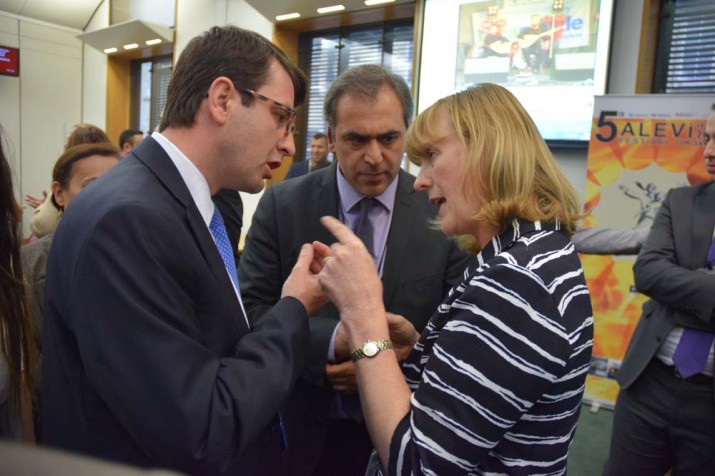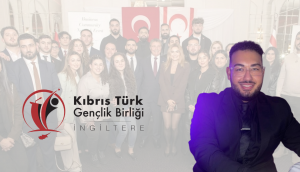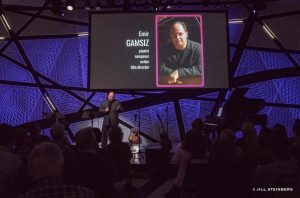Alevi difference at festival launch
Alevi leader and Consul General disagree over Alevism’s status in Turkey

Emirhan Yorulmazlar (left) with İsrafil Erbil and Joan Ryan
The fifth annual Alevi Cultural Festival was opened with a reception at Britain’s parliament last weekend.
Politicians, diplomats and charity leaders were all present for the event, which included a semah folk dance performance.
But the opening speeches of the event were marked by a confusion over the legal status of Alevi places of worship in Turkey, with Turkish Consul General Emirhan
Yorulmazlar denying one Alevi leader’s statement that they were prohibited in Turkey.
İsrafil Erbil, the leader of the British Alevi Federation, used his opening remarks to call for recognition of Alevi places of worship in Turkey.
“We are trying to be seen and recognised because … we are not still recognised by our own country in Turkey and Cemevis are forbidden, Alevism is forbidden,” he told the audience.

A traditional semah folk dance was performed at the opening ceremony
But Mr Yorulmazlar insisted the cemevi – the traditional place of Alevi worship – was not banned in Turkey. The consul general accepted that Alevism is not recognised by the Turkish secular constitution, which does not accord recognition to any religion, but insisted there were no prohibitions on practicing the faith in the country.
He said: “Maybe it was because of [Mr Erbil’s] English, but ‘prohibited’ is not the right word. ‘Recognised’ is something else but ‘prohibited’ is not because in my own town there is an Alevi cemevi.”
Also speaking at the event was the newly-elected MP for Enfield North, Joan Ryan, who welcomed the general election result in Turkey: “A lot of people gave HDP no chance of getting over that threshold of 10 percent but they have done that and done so well. And people in Turkey suffered so much for it. Kurdish and Alevi people have suffered to establish that kind of democracy.”
She continued: “We must raise awareness of the issue of recognition for the Alevi communities in Turkey. People in this country are not as aware as they need to be and one of the things I want to do in this parliament – that all of you helped me get elected to – I want to make sure that the people of this country are aware of this issue and how important it is.
“And all communities and faiths and people of no faith deserve recognition and deserve to live within the democracy, safe and free and able to enjoy their human rights. And that’s what we strive for.”









